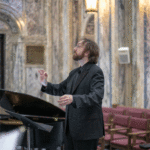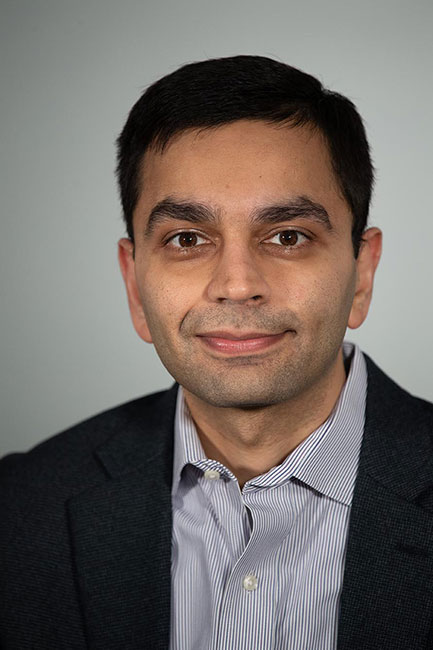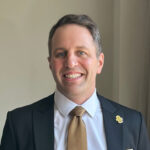
Sohil Parekh ’99 develops a method to solve problems

Like many Wooster students today, Sohil Parekh ’99 approached Independent Study with two majors and found a way to connect them in one project that combined his interests. While math and economics are a natural combination, Parekh explained how his interest in the two subjects differ. “My interest in economics comes from my interest in public policy and solving big problems. The reason I majored in math is because I was actually interested in problem solving,” he said. “Solving a problem is something big: curing world hunger, environmental issues, healthcare reform. Problem solving is the method and approach you use to solve a problem. Problem solving is a big part of what I do today.” For Parekh, his own approach to solving problems in his work uses methods he developed while working on his I.S.
In his senior year at Wooster, Parekh was passionate about environmental issues, including the sustainable use of Earth’s renewable resources, such as wood or water. For his I.S., he researched the optimal rate of extraction for these resources. Combining natural resource economics with calculus of variations theory in mathematics, he modeled an equation to “calculate the exact rate of resource extraction that allows the base to remain stable,” he said. “When I think of the equation that we ended up with at the end of the day, there were a lot of variables, and I don’t remember how exactly they fit together in the equation, but the number of variables is what I took away. The answers to certain problems aren’t simple or easy but if you use the right method, you can get a better understanding of all the things that do impact the answer. This idea is a part of how I look at problems ever since, looking at the full picture of all the things that might impact an issue.”
Now a graduate of Massachusetts Institute of Technology and Harvard Business School, Parekh found that Wooster “gave him the tools to be successful in a larger research environment. The process of I.S. gives you the tools to think of a problem in a very structured way. Define the problem correctly, find the right method to solve the problem, learn from what everybody else has done, and then apply it to extend the knowledge of the field further. That’s what we do every day in the problems we solve in work and life.”
As executive director of marketing technology at Aetna, a health insurance company, Parekh works with his team to use digital technology to help guide people through their health care decisions. For example, he said, “Seniors struggle to understand the complexities of Medicare. We’re building digital tools that make it easy for people to learn about Medicare products and pick the one that’s right for them.” His passion for technology also developed during his time at Wooster through his involvement in the creation of the first website for The Wooster Voice. He remembers heated debates with the staff that included thinking through variables such as how a website might impact subscriptions and ad revenue and their decision that the site would increase engagement and awareness with the publication. “Every time I go to a new job or experience, there’ll be something that I’ll be able to tie back to an experience I had at Wooster,” said Parekh, remembering also being involved in the international student association, serving as a resident assistant and peer educator, and working in the computer center. “All of these experiences in and of themselves seem disconnected, but as I move through my career what I’ve found is that the combination of skills and the interconnecting points between them have been very powerful for solving problems and for my work.”
In his career, solving problems successfully requires understanding all the variables that impact an issue and looking at the full picture by combining a number of perspectives. “The people that are the most successful at problem solving draw upon a wide set of experiences and understand how all of those pieces fit together,” said Parekh, who’s been able to draw on his experiences at Wooster throughout his career. “Solving today’s problems requires people with diverse skills to work together. When you bring people from all kinds of different areas together to solve a problem you get the best thinking and you get the best outcomes.”
Posted in Alumni on June 26, 2019.
Related Posts
Related Areas of Study
Mathematics
Numbers + patterns + structures multiplied by a zest for analysis and inquiry
Major MinorEconomics
Learn how humans organize to sustain life and enhance its quality from a diversity of economic perspectives
Major Minor

